I have a friend who has enjoyed hosting international visitors in Tokyo in her
own condo.
She has been hosting international visitors in her spare two-bedroom apartment
but will have to stop it because her building association (管理組合)has decided to
ban the minpaku business ahead of the law’s
enactment in June 2018.
She was able to meet many different people she would have not met otherwise.
A lot of foreign friends have been asking me a question about minpaku (民泊、private lodging) in Japan.
Today I am going to discuss the basic knowledge about minpaku and minpaku law
set by the government in 2016.
How does the new minpaku law work ?
What is the implication on the real estate industry ?
Background
(UNWTO inbound tourism ranking (number of visitors) 2016)
(International tourism spending by UNWTO)
The number of tourists visiting Japan hit a record high in 2017, with the booming tourism industry buoyed by visitors from neighbouring Asian nations such as China, Taiwan and Korea.
The first chart shows the world ranking of inbound tourism in 2016 by UNWTO (UN World Tourism Organization)
France tops the list, followed by USA and Spain.
Japan is ranked only at 16th place, 6 places behind Thailand. And Chinese visitors inject much-needed cash into neighbouring economies. (See the second chart)
Japan including areas like Shikoku (四国)and Tohoku (東北) is underlining the untapped potential for inbound tourism. Judging by Japan’s vast potential including world’s best foods,
its unique culture and rapidly growing neighbouring economies, it is fair to say Japan will receive far more foreign tourists in years to come. The problem is the shortage of the accommodations.
In a sense, the minpaku law will be effective as from June 15, 2018 to address the shortage issue.
The minpaku Law (民泊新法、住宅宿泊事業法) to be enforced on June 15, 2018
permits the commencement of minpaku by simply registering for houses meeting
certain criteria (For minpaku business, no hotel license is required)
Through relatively simple procedures, it is possible for individuals to legitimately
conduct minpaku business by utilizing idle
assets such as empty houses and empty rooms.
The hotel (and ryokan) industry (旅館業) is defined as “business that receives room
charge and accepts guests for stay”
“Accommodation” is said to use the facility by using bedding. In other words, the
hotel industry is required to supply bedding.
Also, you have to charge your guests.
Obviously, if you accept your friends and relatives without charging them, you are
not subject to the hotel business law.
“Business” means an act that has an intention to repeat and that act is social.
In the case of having a willingness to continue repetitively in a facility that
allows people to stay by receiving room charge, and if the act has social property,
it will be subject to regulation by the hotel
business law.
Business owners of the such properties are obliged to conform facilities to
structural equipment standards and hygiene control standards.
However, minpaku (private lodging) has been in a legally gray zone.
Here are some more background stories.
Inbound tourism continues to grow as a record 28.7 million tourists visited Japan in
2017, up 19 percent from 2016, and the government is aiming to have 40 million
visitors in 2020, the year of the Tokyo Olympic.
There are concerns that there won’t be enough accommodations, especially in big
cities centers.
The hope is that minpaku (民泊, private lodging) will fill in for more traditional
lodgings.
Japan had no laws specifically outlawing such services, the Hotel Business Law (旅
館業法)sets out conditions few private homes can meet.
Short-term private lodging services (minpaku) has been in a legal gray zone in
Japan, and owners/operators face the risk of running into regulatory hurdles.
Japan’s new home-sharing law was meant to ease a shortage of hotel rooms, bring
order to an unregulated market.
But those uncertainties are clearing after the government passed a new law in
2016 allowing short-term housing rentals under certain conditions.
The minpaku law, the first national legal framework for short-term home rental limits home-sharing to 180 days a year.
Some hosts say the 180 days cap makes it difficult to turn a profit.
The new law is supposed to offer more lodging options for foreign visitors ahead
of 2019 Rugby World Cup and the 2020 Tokyo Olympics.
Instead, the law may stifle Airbnb Inc. and other home-sharing businesses
when it is enacted in June and force many homeowners to stop offering their
services, renters and experts say.
More important, local governments, which have final authority to regulate services
in their areas, are imposing even more severe restrictions, citing security or noise
concerns.
For example, Tokyo’s Chuo Ward where famous Ginza shopping district is situated,
has banned weekday rentals on grounds that allowing strangers into apartment
buildings during the week could be unsafe.That’s a huge disappointment for some super hosts in Airbnb.
The ancient capital of Kyoto, which draws more than 50 million tourists a year, will
allow private lodging in residential areas only between Jan. 15 and March 16,
avoiding the popular spring and fall tourist seasons.In short, some renters and experts say,
the new law is doing more to hurt than help.
In the meantime, Seven-Eleven Japan Co. is reported to launch an automated
check-in service for minpaku that allows guests
to collect and leave room keys 24 hours a day.
The service, Convenience Front Desk 24, will begin at some Seven-Eleven stores in Tokyo on June 15, 2018.The service was developed jointly with Japan’s largest travel agency JTB. The minpaku industry has the vast opportunities and is evolving very dramatically.
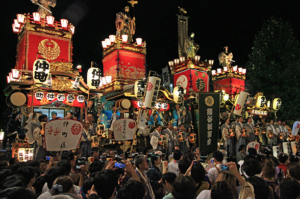
Key rules and information of the new law
What is Private Lodging (民泊, minpaku) officially meaning ?
A business where any person other than a business proprietor, as set forth in the Inns and Hotels Act, provides lodgings at a private house for a fee, not exceeding the use of the private lodgings to 180 days a year.
The “houses” that can conduct private lodging business must be equipped with a kitchen, a bathroom, a restroom (toilet), and a washstand facility.
In addition, the house shall be currently used as the main home of a person, a
house which is advertised to a new dweller after the period of lease with a
former dweller has expired, as per the residence requirements.
Who is a Private Lodging Operator(事業者)?
A person engaged in the Private Lodging Business as per a notification.
Registering (届け出) is mandatory
A person who intends to operate a Private Lodging Business is required to notify the prefectural governor or similar, stating intention to operate such business. In addition, a document that proves that the lodging meets the residence requirements, such as an advertisement for rent, along
with an attachment of the housing plan are required upon notification.
Guide line of New Minpaku Law (住宅宿泊事業法) in Japanese only
Private Lodging Operator (事業者)
Who is a Private Lodging Operator(事業者)?
A person engaged in the Private Lodging Business as per a notification.
Registering (届け出) is mandatory
A person who intends to operate a Private Lodging Business is required to notify the prefectural governor or similar, stating intention to operate such business. In addition, a document that proves that the lodging meets the residence requirements, such as an advertisement for rent, along
with an attachment of the housing plan are required upon notification.
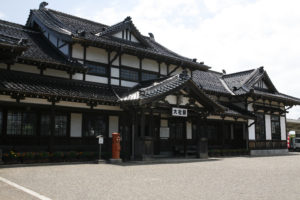
Minpaku operator must take the following measures for conducting an appropriate minpaku business.
(1)Ensuring the Health of Lodgers
Secure 3.3 m2 or wider of floor space per lodger for the lodging room Cleaning and ventilation
(2)Ensuring Safety of Lodgers
The Private Lodging Operator shall take the following necessary
measures:
Install emergency lighting equipment.Display the evacuation route
Take other measures to ensure safety for the lodgers in case of fire
or other disasters.
(3)Secure Comfort and Convenience of Lodgers, who are Foreign Tourists
The Private Lodging Operator shall take the following necessary
measures to the lodger:
Provide guidance in a foreign language on how to use the
equipment in the notified lodging
Provide information in a foreign language on means of transportation
Provide guidance in a foreign language on what number to dial in
event of fire or other disasters
(4)Lodgers’ Registry Book
The Private Lodging Operator shall take the following necessary measures in
preparing a Lodger’s Registry Book;
Create it upon identity verification
Preserve it for 3 years from the date created
List the names, addresses, occupations and lodging dates of each
lodger
List nationality and passport number in cases where the lodger does not have a fixed address in Japan
(5)Prevention of Harmful Effects on the Living Environment in the Surrounding Area
The Private Lodging Operator shall explain to lodgers by documentation or using other such proper
method, of the following matters:
Matters to be considered for preventing noise
Matters to be considered for disposal of waste
Matters to be considered for preventing fire
(6)Response to Complaints
The Private Lodging Operator shall quickly and properly respond to complaints and inquiries from residents in the areas surrounding the notified private lodging.
(7)Entrustment of Private Lodging
Administration Business The Private Lodging Operator must entrust
a Private Lodging Administrator to take the foregoing measures (1) to (6) in any of the following cases.
In the event where the number of lodging rooms of the notified
lodging exceeds 5, In the event where the Private Lodging
Operators are absent while there are lodgers
*Exclude cases where the Private Lodging
Operator is absent within the time scope required for ordinary
actions on operating his/her daily life
(8)Entrustment to Private Lodging Agent
The Private Lodging Operator must entrust agency/intermediary
service in concluding a Lodging Service Provision Agreement
(agreement concerning the provision of lodgment services to
lodgers at the notified housing) to a Private Lodging Agent or a
travel agent in case of entrustment to other persons.
(9)Posting of Signs
The Private Lodging Operator shall post a sign in a place
accessible to the public at each notified housing location.
(10)Periodic Reporting to Prefectural Governor
The Private Lodging Operator must report the following details of
each of the previous 2 months for each notified housing by the
15th day of February, April, June, August, October and December
each year to the prefectural governor:
The number of days having lodgers at the notified housing
The number of lodgers
The total number of lodgers
A breakdown of the number of lodgers per nationality
Periodic reporting can be made using an
electronic system.The Private Lodging Operator shall confirm
the rules set forth in the prefecture where the lodging is registered.
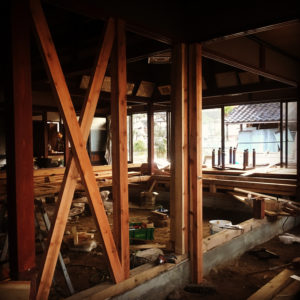
Private Lodging Administrator(管理業者)
Who is a Private Lodging Administrator ?
It refers to a business that conducts private lodging administration for a fee, undertaking the entrustment from a private lodging operator set forth in Article 11, paragraph 1.The private lodging administration business refers to a business conducting the maintenance of notified lodging necessary for the proper implementation of business and private lodging business under the provisions from Article 5 to Article 10.
What is a Private Lodging Administrator?
A person who has been registered as a private lodging administration business and is operating as such.
How to Start the Business ?
Registering (届け出) is mandatory.
A person who intends to engage in the Private Lodging Administration Business needs to obtain registration from the Minister of Land, Infrastructure, Transport and Tourism.Upon application for registration, the Private Lodging Administrator shall submit the application form with the necessary details completed and an attachment of a written oath stating that he or she does not fall under any disqualification requirements set forth in Article 25, paragraph 1.
In addition, the registration needs to be renewed every 5 years.
Duties of the Private Lodging Administrator
The Private Lodging Administrator needs to take the following measures mainly for conducting an appropriate Private Lodging Administration Business.
(1)Prohibition of Misleading Advertising
In advertising the business, the Private Lodging Administrator shall not give indications of matters that are significantly contradictory to facts or that mislead others to believe that such conditions are significantly better or more favorable than the actual conditions.
Matters concerning the liability of the Private Lodging Administrator Matters concerning the amount of fees Matters concerning the cancellation of the Entrusted Administration Agreement
(2)Prohibition of Unjust Solicitation
In the Private Lodging Administration Business, the following acts of information on important matters that may have an impact on the judgment of the Consignor and misrepresented information to solicit the conclusion of a Entrusted Administration Agreement are prohibited.
Actions to solicit by phone or paying visits at times which the entrustee feels it to be troublesome Actions to solicit with persistence, although an entrustee declared his/her intention not to conclude or renew an agreement Actions to conclude an Entrusted Administration Agreement, although it is clear that proper conduct of Private Lodging Administration Business cannot be secured, taking the location and other affairs of the notified lodging into consideration
(3)Issuance of Documents upon Conclusion of Entrusted Administration Agreement
To conclude an Entrusted Administration Agreement, the Private Lodging Administrator shall issue documents and explain matters concerning the details and performance of an Entrusted Administration Agreement to the Consignor before or by the conclusion of the agreement.
Main Matters to Be Stated on Documents Before Conclusion
A trade name, title or name of the Private Lodging Administrator with its registered date and registered number
Eligible notified lodging covered by the Private Lodging Administration Business
Contents and Implementation method of the Private Lodging Administration Business;
Matters concerning fees such as payment term and method, etc.
Main Matters to Be Stated on Documents upon Conclusion Matters on reports to the Private Lodging Operator as set forth in Article 40, in addition to the matters listed on the document before conclusion(※)
(4)Prohibition of Re-entrustment of Private Lodging Administration Business
The Private Lodging Administrator shall not re-entrust to others the whole of the Private Lodging Administration Business entrusted by the Private Lodging Operator.
(5)Implementation of Private Lodging Administration Business
When a Private Lodging Business Operator entrusts private lodging management work to a Private Lodging Administration Business, the provisions in Articles 5 through 10 (※) shall apply mutatis mutandis to the Private Lodging Administrator who received the consignment and will be responsible for the Private Lodging Administration at a notified lodging.
Provisions from Article 5 to Article 10 Ensuring the Health of Lodgers Ensuring the Safety of Lodgers Secure the Comfort and Convenience of Lodgers who are Foreign Tourists Preparation of the Lodgers’ Registry Book Explanation on Prevention of Harmful Effects on the Living Environment in the Surrounding Area Response to Complaints
(6)Carrying of Identification Cards
Private Lodging Administrators shall, as prescribed by ordinance of the Ministry of Land, Infrastructure, Transport and Tourism, not allow their employees and other workers who engage in the business to actually engage in the operations without carrying identification cards that certify that they are the Private Lodging Administrator’s employees or workers. Each employee’s name with the location of the business office or offices the person works, and the registration number and other matters of the Private Lodging Administrator will be stated on the card.
(7)Preparation of Account Books
The Private Lodging Administrator shall prepare account books concerning the business at each business offices or other office, list the date of concluding the Entrusted Administration Agreement and other matters for each notified lodging, close the date at the end of each business year and preserve them for 5 years after such closure.
(8)Posting of Signs
The Private Lodging Administrator shall post a sign in the format specified by ordinance of the Ministry of Land, Infrastructure, Transport and Tourism in a place accessible to the public at each of its business offices or other offices, as it is required to clarify that the agent is registered properly.
(9)Periodic Reporting to Private Lodging Operator
A Private Lodging Administrator shall report the implementation status of the Private Lodging Administration Business and other matters to the Private Lodging Operator, who has concluded the Entrusted Administration Agreement, at the end of a business year or after the termination of the agreement term.
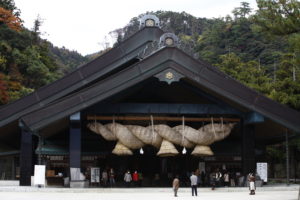
Private Lodging Agents (仲介業者)
Who is Private Lodging Agency?
A business that conducts a Private Lodging Agency by a person other than travel agents as prescribed in Article 6-4, paragraph 1 of Travel Agency Act, gaining remuneration to fulfill the duties.
The Private Lodging Agency Business means the following actions.
(1)Activities as an agent, intermediary, or a broker of lodgers in concluding a contract for receiving lodgment service at a notified housing; and
(2)Activities as an agent or intermediary of Private Lodging Operators in concluding a contract for providing lodgment service to lodgers at a notified housing.
Who is Private Lodging Agent?
A person engaged in the Private Lodging Agency after receiving registration.
Registration of the Travel Agency Act is required in order to conduct Agency of Special Zone Housing Facilities etc. for Simple Lodging based on the Inns and Hotels Act and Act on National Strategic Special Zones.
How to Start a Business ?
Obtain Registration
A person who intends to operate the Private Lodging Agency Business needs to obtain registration from the Commissioner of the Japan Tourism Agency.Upon application for registration the Private Lodging Agent shall required matters and shall submit the application form with completed necessary details and an attachment of a written oath stating that it does not fall under any disqualification requirements set forth in Article 49, paragraph 1.
In addition, the registration needs to be renewed every 5 years.
Responsibilities of the Private Lodging Agent
The private lodging agent needs to take the following measures mainly for performing appropriate private lodging administration business.
(1)Private Lodging Agent Clause
The Private Lodging Agent needs to set forth Private Lodging Agent clauses on agreements related to Private Lodging Agent Business to be concluded with the lodger, and needs to notify them to the Commissioner of the Japan Tourism Agency before conducting such.
※In an event where the clauses set forth by the Private Lodging Agent are equivalent to those of the standard Private Lodging Agent Business, it will be deemed as having notified the Commissioner of the Japan Tourism Agency.
・The Private Lodging Agent needs to make a public notice of the Private Lodging Agent Business clauses by either posting them in its business office or office or by disclosing them via the Internet.
(2)Public Notice of Fees for the Private Lodging Agency Business
The Private Lodging Agent shall fix fees received from lodgers and Private Lodging Operators concerning the Private Lodging Agency Business pursuant to standards specified by an Ordinance of the Ministry of Land, Infrastructure, Transport and Tourism and publicly notify them at its business offices or other offices, or on the Internet before the start of business.
(3)Prohibition of Unjust Solicitation
The Private Lodging Agent shall not commit any of the following acts:
・Acts of intentionally failing to disclose the facts to lodgers or misrepresenting information on important matters concerning the said Private Lodging Agency Agreement that may have an impact on the judgment of the lodgers to solicit the conclusion of the agreement or hinder the cancellation.
(4)Prohibition of offering Conciliation for Illegal Acts
In order to seek protection for Lodgers, A Private Lodging Agent or any agent, employee or any other worker shall not commit any of the following acts:
Giving conciliatory services for illegal acts or providing convenience to lodgers for performing such acts;
Providing conciliatory services in violation of laws or regulations or providing convenience to lodgers for receiving the provision;
Placing advertisements to the effect that the conciliatory services or convenience in the preceding items [1] and [2] is provided or similar advertisements are made; and
Actions that force the lodger to receive a certain service provision or to purchase a certain item
Actions not to confirm whether a lodging service provider had notified those stated in Article 3, paragraph 1 upon dealing with such provider
(5)Issuance of Documents before Concluding Private Lodging Agency Agreement
To conclude a Private Lodging Agency Agreement, the Private Lodging Agent shall issue documents and explain matters concerning the details and performance of the agreement to the lodgers by the conclusion of the agreement.
A trade name or title or name and notified number of the private lodging agent
The notified housing where the lodger stays (Information which the lodger can understand the location of the notified housing accurately)
Value and fees to be paid from the lodger to the Private Lodging Agent with their payment term and method
Details on the lodging service to be received with the foregoing value
Matters on liability, disclaimer and such
(6)Posting of Signs
The Private Lodging Agent shall post a sign in the format specified by an Ordinance of Ministry of Land, Infrastructure, Transport and Tourism in a place accessible to the public at each of its business offices or other offices.However, the obligation to present such will not apply in an event where its registered date, registered number and other information are announced via using electromagnetic method.
Measures to Be taken by the Time of the Private Lodging Business Act Being Enforced or before Applying for Register
Confirming the Legality
Those who are already operating a private lodging agent website need to confirm the legality on the materials that have been posted.
The Private Lodging Agency needs to report to the Tourism Agency on the following items related to the notified materials posted on the Private Lodging Agency website by the 15th day of April and October each year, in order to confirm supplementary whether the Private Lodging Operator has lodged a person for over 180 days or to confirm whether an operation was conducted during the term prohibited by the ordinance, if limited by such.
A trade name, title or name of the private lodging agent
An address and the notified number of the notified housing
The number of days having people lodged in the notified housing
key implications of new minpaku law
1. A breakthrough for lodges in the residential district
Minpaku operators can utilize conventional houses for lodging service.
It sounds no surprise but it is,in fact, a breakthrough.
In Japan, it is necessary for any business to follow strict land-use zoning rules under the city planning law. And hotels and ryokan (旅館、Japanese inns) are not allowed to be built in the any exclusive residential district(住宅専用地域) under the city planning law.
By positioning minpaku with using houses in the residential zones where
conventional hotels could not be built, operators can now conduct minpaku
business using private houses. However, regulations can be added by the
ordinance at the discretion of the municipality.
2. Cap for 180 business days is tough for the business
There is a cap of 180 days a year for business days. It may be difficult to generate the profit for
the operators.
The annual business days are restricted to 180 days or less, and some local governments can establish ordinances that further shorten the number of days.
The government creates two categories in minpaku law.
・Minpaku with hosts being present in the property (家主居住型)* The operators (landlords) rent out rooms while he or she lives in their own room. (Sharing)
・Minpaku without hosts present (家主不在型)*The operators (landlords) own the property but they do not live in the property.
Both categories are allowed to operate within certain requirements but minpaku without host will face more restrictions.
3. Registration for operators, administrators and matching agents became mandatory
Ones who wish to do minpaku business in the three fields must register with prefectural governors. All matching sites on web such as Airbnb are now required to register with JNTO (Japan National Tourism Organization).
4. Tasks are daunting
Tasks and measures for minpaku business are very detailed and quite daunting.
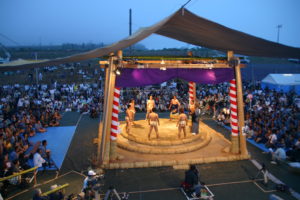
Conclusion
1.New law is doing both good and harm
Japan’s new minpaku law is meant to ease a shortage of hotel rooms, bring order to an unregulated market.
The breach of the law may bring maximum 1 year sentence or penalty of 1 million yen.
It is good to regulate the gray industry and it will bring the peace of mind for visitors.
There is the indication the uncertainty will end anytime soon but I believe
the central government will see how the new law will go from June 2018 and
revisit the law in a couple of years time to make the necessary amendment.
2. Ordinance by local government is a tricky part
When it is necessary to prevent deterioration of the living environment
caused by noise and other factors attributable to the Private Lodging
Business, the prefecture may limit the period of conducting the Private Lodging
Business by defining an area pursuant to provisions of an ordinance, following the
guidelines specified by a cabinet order to the extent deemed reasonably necessary.
Some Local governments, which have final authority to regulate services
in their areas, are imposing even more severe restrictions. If you want to start minpaku business in your area, you need to check how your local government
is regulating service. In general, many local governments are restricting minpaku service in the residential districts.
For example, Minato- Ward in Tokyo is severely restricting ‘minpaku without host’ in residential districts (zoning) such as Akasaka, Hiroo and Omotesando area.
There is no restriction on ‘minpaku with host’ in any district in Minato-ku.
Minato-Ward minpaku rule (Japanese only)
*Each address(area) in Japan has the relevant zoning code called ‘yotochiiki’ (用途地域)such as residential district, commercial district under the land planning law. So if your property is
situated in the residential district, you can not operate any commercial business in your property as the area is specially designated as ‘residential’.
Outline of City Planning System Urbanization Promotion/Control Area Land Use Zone and Regulation Building Control Incentive System District Plan by Ministry of Land, Infrastructure, Transport and Tourism (in English)
3. Alignment with Hotel Business Law should ease the political tension
The hotel industry has been regulated for a long time under the Hotel Business Law (旅館業法)
and politically has been opposing minpaku business. New minpaku law resolves the political
issues for the time being.
4. Shortage of accommodations shall be eased
It is estimated that 12-13% of foreign visitors are already staying in minpaku facilities whether they are lawful or not.
Ahead of 2019 Rugby World Cup and 2020 Tokyo Olympic, Japan needs more accommodations.
The new law will definitely ease the shortage of the accommodations in Japan in the long
run, however, the official registration system will probably make some people stay away from the business in short term. As usual,the government is setting excessive regulatory and administrative frameworks.
5. New business opportunities will be arising
The new law will create the new opportunities in the real estate industry.
Many properties including Akiya (空き家、abandoned house), Agriculture house (forgreen tourism, 農泊), Temple (for temple stay 宿坊), Abandoned schools (廃校), villa (using empty villas for minpaku) can be turned into the lawful minpaku facilities.International hotel chains are expanding to target the boom in foreign tourists as well.
6. The government is relaxing the Hotel Business Law
The government relaxed the regulations on the hotels and hostels in the hotel
Business Law as well.
The license for cheap lodge (hostels, 簡易宿泊所)became easier to obtain.The regulations on the minimum guest
rooms, toilets, lobby facility are all relaxed.The small size hostels (簡易宿泊所) can
operate without having the proper lobby facility and staff on the spot.
Taking advantage of the relaxed law, the empty rooms in the certain rental building could be collectively managed by the third parties (administrators) from the distance (about 10 mins distance) sharing the same lobby facility. Technically such rooms could obtain the
hotel license subject to the approval of change of use. (用途変更)
It is rumored that Recruit is now considering to enter this hotel
administration business tapping empty rental properties where
they have the strong presence with its property matching site ‘SUUMO’.
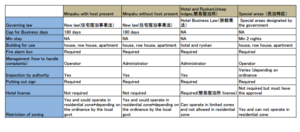
The summary of new law(Please click to enlarge the image)
Guideline of New Minpaku Law (住宅宿泊事業法) in Japanese only
Hotel Business Law (旅館業法)in Japanese only
Consultation service
Spot consultation is available for those who are interested in minpaku leveraging the real estate investment.
Spot consultation fee starts from 50,000 yen per two hours (plus tax). Consultation over Internet telephone is possible for those who are distant from Tokyo.
If you are seriously interested in doing minpaku business, please contact us.
Toshihiko Yamamoto
Real estate investing consultant and author.
Founder of Yamamoto Property Advisory in Tokyo.
International property Investment consultant and licensed
real estate broker (Japan).
He serves the foreign companies and individuals to buy and sell
the real estates in Japan as well as own homes.
He holds a Bachelor’s degree in Economics from
Osaka Prefecture University in Japan
and an MBA from Bond University in Australia
Toshihiko’s book, “The Savvy Foreign Investor’s Guide to Japanese Properties: How to Expertly Buy, Manage and Sell Real Estate in Japan”is now out on Amazon, iBooks (iTunes, Apple) and Google Play.
About the book
Amazon.com Link

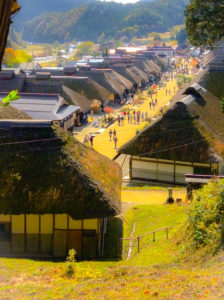
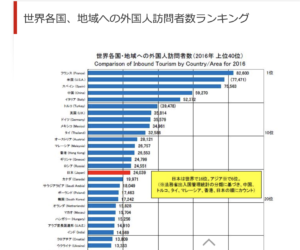
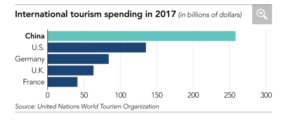
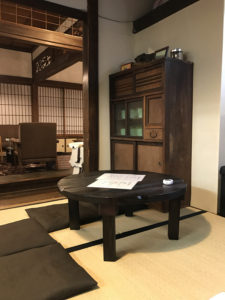
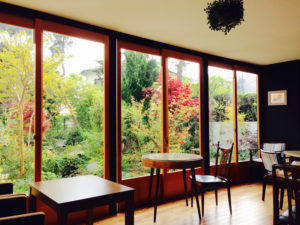

3 comments for “A solution to the hotel shortage ? New minpaku (民泊, private lodging) law in Japan : How does it work ? and how can you tap your property ?”